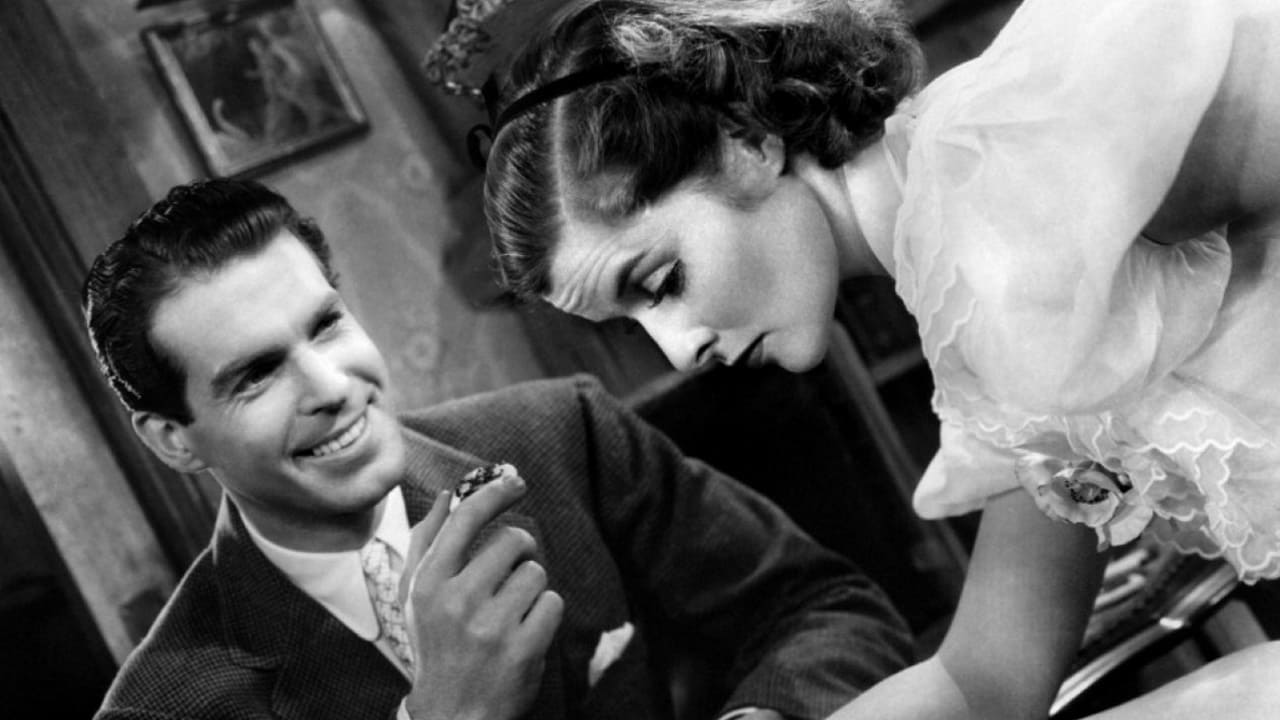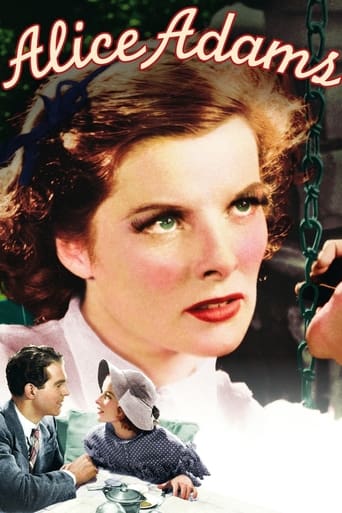

I like movies that are aware of what they are selling... without [any] greater aspirations than to make people laugh and that's it.
... View MoreThe movie's neither hopeful in contrived ways, nor hopeless in different contrived ways. Somehow it manages to be wonderful
... View MoreGreat example of an old-fashioned, pure-at-heart escapist event movie that doesn't pretend to be anything that it's not and has boat loads of fun being its own ludicrous self.
... View MoreAmazing worth wacthing. So good. Biased but well made with many good points.
... View MoreThere's a famous scene in Alice Adams where Katharine Hepburn cries at her bedroom window. Reportedly, she wasn't able to act convincingly in the scene until director George Stevens yelled at her. Humiliated, she was thrust in front of the camera and sobbed. I always thought that was terribly mean of George Stevens, but if you dig deep enough, you'll learn countless Hollywood horror stories.Katharine Hepburn plays the title character, a girl from a poor family who wants a better life. She tries terribly hard to act as though she's more wealthy and classy than she actually is, and when she's noticed by the truly wealthy and classy Fred MacMurray, she enlists her family in the effort to pretend they're well-to-do. This is the premise for many old comedies, but Alice Adams is a drama. It's heartbreaking at times, and one of my favorite Katharine performances. She isn't strong and tough; she's frightened of poverty and constantly hides where she comes from. If you like Stella Dallas or Pocketful of Miracles, you'll like Alice Adams.
... View MoreAlice Adam's' you may see connection between one scene to another, the lover end up at the garden and show their love by exchanging flowers, that means love has been dominated by flowers. For example "Alice Adam's" Alice went garden to pick flower and there was index said, "don't pick the flower" but it was the only flower and she picked up.For example Alice Adams you may see one of index shot that says do not touch it, the camera doll in to Alice then quickly pan to extreme of index sign.However, Alice Adam's edited by Jane Loring in this movie several connected with transition and most transition was "wipe" to connect from one scene to another or one shot to another shots. In conclusion, Drama films are serious presentation or stories with setting or life situation that are portray realistic characters in conflict with individual character or both. This movie contain very famous actress Katherine Hepburn she did nice and wonderful touch to audience.
... View MoreThe Adams family is struggling while father is ill. Alice Adams (Katharine Hepburn) is the young daughter and mother sees father as a failure. Older brother Walter is a gambler and an embarrassment for hanging out with blacks. Mother pushes Walter to escort Alice to a big dance given by Henrietta of the wealthy Lambs. Father's employer Mr. Lamb still pays him despite his lengthy illness. Alice meets wealthy Arthur Russell (Fred MacMurray) at the dance who likes her despite her lack of status. Mother pushes father to take the glue formula he developed for Mr. Lamb and start a risky new glue factory. Mr. Lamb is angered by father's leaving. Mother and Alice try to put on airs by throwing a lavish dinner for Russell but it goes all wrong.Katharine Hepburn is a little wrong to be this insecure young thing. Nevertheless, she makes it work and is the best aspect of the movie. The parents' arguing keeps them from being too funny. Fred MacMurray is a bit stiff but Hepburn acts her heart out.
... View More"Alice Adams" is the story of a somewhat poor family in a small town. The mother and the daughter, Alice (Katherine Hepburn), long for money and standing in the community. When Alice meets an attractive, well-to-do man, Arthur (Fred McMurray), she is afraid to be herself lest Arthur reject her.Things come to a head when the family invites Arthur to dinner. No amount of preparation or posing can stop the truth from revealing itself. The result is edgy comedy.Hepburn, who often plays the strong, willful woman, here plays a more vulnerable character convincingly. McMurray plays an affable character--the type he is most known for.A related story involves Alice's father, the man in the middle of all the conniving and contrivance. Oddly enough, the most satisfying part of the story's climax has to do with his relationship with his former employer.
... View More